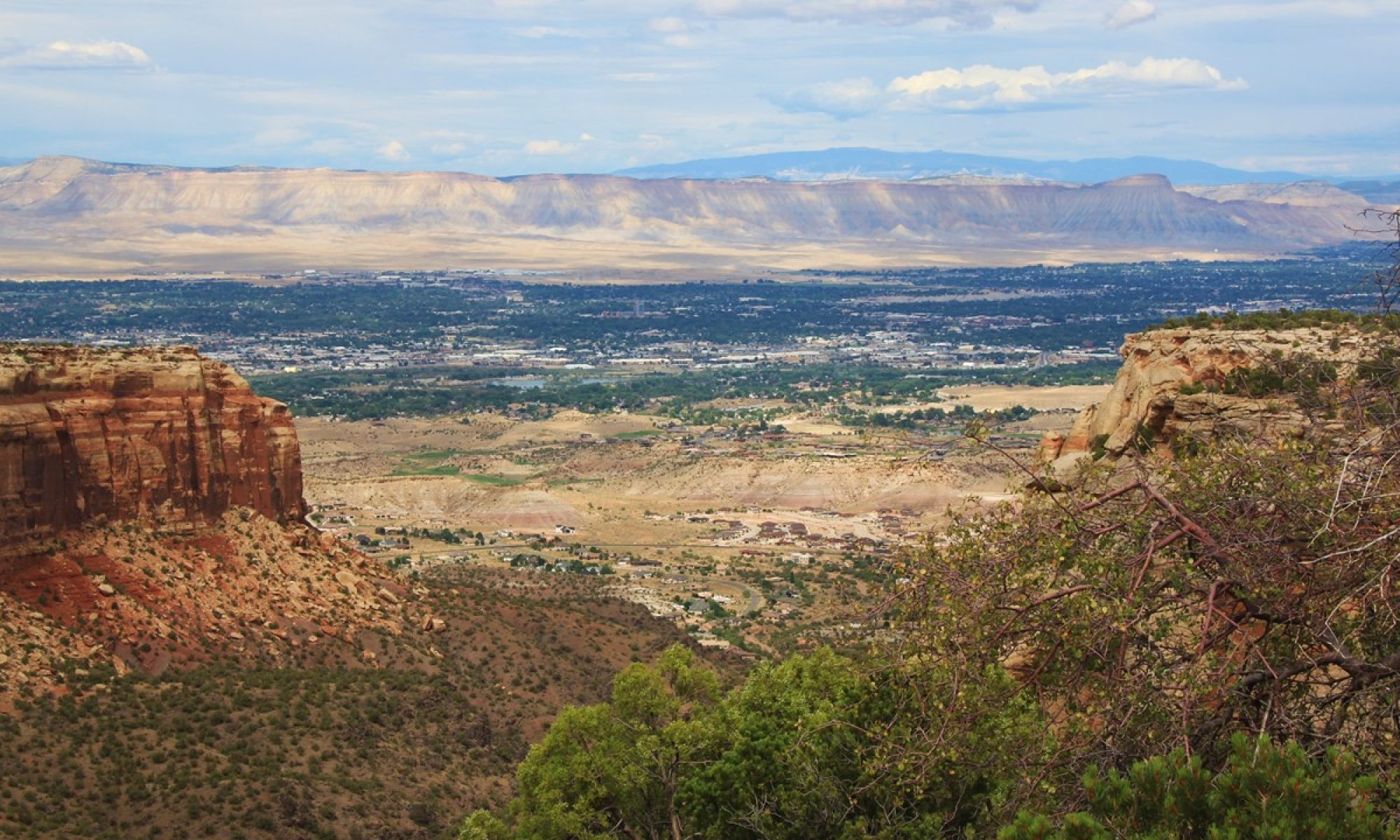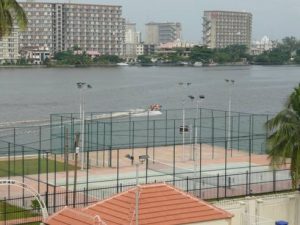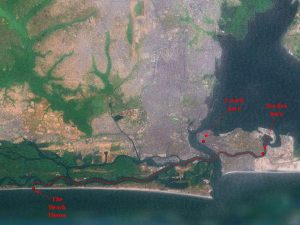Milk is one of those items that is taken for granted in much of the world, but not so in Nigeria. Nigeria is not well suited for dairy farming, causing nearly all milk to be imported. On top of that, the lack of dependable power and/or refrigeration makes storage and transport of milk supplies a somewhat recent development in this part of the world.
On Saturday, August 9th, we adventured with The Nigerian Field Society to the Lagos Mainland and toured the Peak Milk Factory. We met at the hotel and traveled with MoPo (Motor Patrol otherwise known as security vehicles) for a 45-minute drive to Ikeja (north Lagos, near the international airport). At the Peak factory, we were given a slide show on the reconstituting, homogenizing, pasteurizing, sterilizing and canning of Peak Milk. Since few Nigerians have dependable refrigeration, canned milk is the most effective and dependable source. Peak Milk is a Dutch company and was the first dairy company in Nigeria, entering the country 53 years ago. It was the first manufacturer, here, of evaporated milk. Peak employs locally ~1400 people, including 160 engineers, and operates the factory 24 hours/day, 7 days/week, closing only for 2 weeks at Christmas. After dressing in proper gear, (a white lab coat and white hat), we toured the milk production floor and the factory that makes the (tin-plated steel) cans. The machines are kept continually running, with a rotating preventive maintenance schedule for 4-8 hours on every machine weekly.
All the cows in Nigeria could not produce enough milk for Peak milk daily operations. Therefore, all milk for the factory is shipped via milk powder from the Netherlands. Reconstitution of the powder is then done at the factory by the addition of water, fats, minerals and vitamins. The most popular manufactured product that Peak produces is the 157 ml can of evaporated milk. The principle reason for this is that while sealed, the milk will last in excess of two years, and once the can is opened it will last for 7 days without refrigeration. All the tin-plate for the cans is imported from the Netherlands, and all waste materials from the milk production and canning factory are recycled.
Facts:
- 1600 lids are manufactured per minute
- 450 cans are made per minute
- The warehouse has a 4 day supply of empty cans
- The warehouse keeps 4 weeks of powdered milk on-hand
- Powdered milk is recombined with water/vitamins/minerals in 90 minutes
- 1000 cans a minute are filled with milk
- Every can is scanned with x-ray to check its fill level
- The warehouse has a 2 week retail supply of milk
- Peak has its own distributors (trucks and 3-wheel cycles,[used in small villages])
- Distributors deliver product and return cash to Peak in 3 days
- Peak invests 1 billion Naira, (~$9MM), a year in Nigeria
As part of its license to operate, Peak demonstrates a large CSR, (Corporate Social Responsibility), presence. Peak sponsors local water projects, school adoption, and tertiary endowments. The water projects include 19 water boreholes that provide potable water to small villages. The boreholes and water testing is all maintained their company. Peak also considers the access to a basic education a necessity, and contracts with selected schools for 3 years. The schools are selected based upon the local population and its location. If selected, the school then receives computers, books, first aid equipment and notebooks. Tertiary endowments are made to: 1) universities to further the research in food and nutrition science for the development of the people of Nigeria, (for example, soy as an alternate to milk), 2) Twenty-two charity homes (orphanages and young mother homes), and 3) the OACNC (Olu Akinkugbe Child Nutrition Center). The OACNC provides education on nutrition and child nutrition (breast feeding education) including a daily 5-minute radio program “Peak Wholesome Living”.

The Peak billboard on the expressway Lagos mainland.
After the tour, we lunched in the employee canteen on chicken curry and rice, fruit, cole slaw and French fries. We were given a souvenir bag, which included Peak evaporated milk, a Peak hand towel, a Peak hat and pen/notebook. And then made the trek back to the coast, a little wiser and better informed.
































